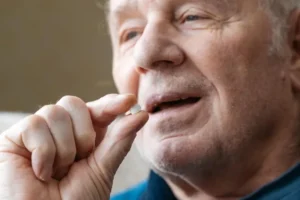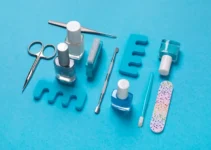As dental health professionals, it’s vital to understand the specific oral health challenges faced by elderly patients. Common oral diseases in this age group, such as periodontal disease, dry mouth (xerostomia), and root decay, necessitate tailored care strategies. Regular visits to a dentist for screenings and treatments can help manage these conditions effectively. Additionally, educating caregivers and family about daily oral hygiene practices can significantly enhance the oral health of elderly individuals. Understanding and addressing the unique dental needs of seniors is crucial for maintaining their overall health and well-being.
Introduction to Common Oral Diseases in the Elderly
As populations around the world age, the incidence of oral diseases among the elderly continues to rise. Oral health is a critical aspect of overall well-being, especially in elderly people, as it can significantly impact their quality of life. Understanding the common oral diseases that affect this age group and their underlying causes can help in developing better prevention and treatment strategies.
Oral diseases in the elderly can range from relatively minor conditions to severe disorders that necessitate complex treatments. Common issues include tooth decay, gum disease, tooth loss, and oral cancer. Early detection and management are crucial in mitigating the adverse effects of these diseases.
Prevalence of Oral Diseases in Elderly Population
The prevalence of oral diseases is notably high in the elderly population. According to multiple studies, dental caries affects about 50% of elderly individuals. Periodontal disease, which involves inflammation and infection of the gums, is also very common, affecting more than 70% of adults aged 65 and older. The incidence of oral cancer also increases with age, making regular screenings crucial.
Given that many elderly individuals retain their teeth into later life due to advancements in dental care, the challenge of managing oral diseases has become more significant. The combination of natural wear and tear and chronic health conditions exacerbates the problem, leading to a higher prevalence of oral diseases in this demographic.
Factors Contributing to Oral Health Issues
Several factors contribute to oral health issues in the elderly, including dry mouth (xerostomia), poor oral hygiene, and chronic diseases such as diabetes. Medications commonly prescribed for age-related conditions can also have side effects that affect oral health. For instance, over 500 medications list dry mouth as a side effect, which can lead to tooth decay and gum disease.
Nutritional deficiencies are another significant factor. Many older adults may have difficulties chewing and swallowing, which can lead to a less balanced diet, further affecting their oral health. Socioeconomic factors such as limited access to dental care and financial constraints can also play a role in the worsening of oral health conditions among the elderly.
Impact of Aging on Oral Health
Aging has a direct impact on oral health in a myriad of ways. As we age, the bone density of our jaws decreases, making teeth more susceptible to decay and loss. Additionally, the gums may recede, exposing more of the tooth surface, which increases the risk of cavities and infections.
Moreover, the elderly are more likely to suffer from systemic conditions such as cardiovascular diseases and diabetes, which have well-documented relationships with oral health. For example, periodontal disease has been linked to an increased risk of heart disease and stroke. Understanding these connections emphasizes the importance of integrated healthcare approaches that consider both oral and overall health.
Conclusively, maintaining good oral health in the elderly involves a comprehensive approach that takes into account the various contributing factors and impacts. For further insights into specific conditions and advanced treatment options, consider exploring other articles in our series.
Common Oral Diseases in the Elderly
As we age, our oral health needs evolve, and the elderly population is particularly susceptible to a range of oral diseases. Maintaining good oral hygiene is crucial, but understanding the specific conditions that often affect seniors can help in both prevention and treatment. Among the most common oral diseases in the elderly are gum disease and tooth decay.
These conditions not only affect the quality of life but can also have serious consequences if left untreated. Early detection and intervention are key to managing these diseases effectively. Let’s explore these common oral diseases in more detail.
Gum Disease (Periodontitis)
Gum disease, or periodontitis, is an inflammatory condition that affects the tissues surrounding and supporting the teeth. It is primarily caused by bacterial plaque build-up. Inflammation of the gums is the initial sign, which, if left untreated, can progress to more serious stages involving the bone and connective tissues.
The risk of periodontitis increases with age due to factors such as:
- Reduced immune function
- Chronic illnesses like diabetes
- Medication side effects causing dry mouth
Common symptoms of periodontitis include swollen and bleeding gums, receding gums, and loose teeth. Management involves professional dental cleanings and, in severe cases, surgical interventions.
Studies show that periodontitis is not only detrimental to oral health but may also be associated with systemic conditions such as heart disease and stroke. Thus, maintaining periodontal health is crucial for overall well-being.
Tooth Decay (Cavities)
Tooth decay, or cavities, is another prevalent issue among the elderly. Caused by the destructive action of acids produced by bacterial metabolism of sugars, cavities can lead to significant discomfort and tooth loss if not treated promptly. Seniors are more vulnerable due to potential difficulties in maintaining oral hygiene and the presence of recession of the gums, which exposes the tooth roots.
Factors contributing to tooth decay in the elderly include:
- Dry mouth (xerostomia) caused by medications
- Dietary choices high in sugars and acids
- Inadequate oral hygiene practices
Managing tooth decay involves routine dental check-ups, the use of fluoride treatments, and, where necessary, restorative techniques such as fillings or crowns. Prevention is better than cure, and adopting a comprehensive oral care routine is essential. This includes regular brushing and flossing, a balanced diet, and routine visits to the dentist. Education and awareness about tooth decay and its implications can significantly reduce the incidence of this preventable disease.
Understanding these common oral diseases and their impact on the elderly is the first step towards effective management and prevention. Stay informed and proactive about your oral health by reading more articles and continuing your education on this vital topic.
Care Strategies for Maintaining Oral Health in the Elderly
As we age, oral health becomes increasingly important. The elderly face unique dental challenges, including higher risks of tooth decay, periodontal disease, and tooth loss. Understanding effective care strategies can make a significant difference in maintaining oral health and overall well-being in older adults. This article will outline key strategies to help protect and improve the oral health of elderly individuals.
By focusing on regular dental check-ups, proper oral hygiene practices, and a balanced diet, we can significantly reduce the incidence of oral health issues in the elderly. Adopting these strategies not only helps in maintaining a healthy mouth but also contributes to the overall quality of life.
Regular Dental Check-ups
One of the most effective strategies for maintaining oral health in the elderly is scheduling regular dental check-ups. These visits allow for early detection and management of oral health issues before they become severe. According to the American Dental Association, older adults should visit their dentist at least twice a year for comprehensive exams and cleanings.
Regular dental check-ups involve thorough examinations of the teeth, gums, and mouth. Dentists look for signs of decay, gum disease, and other potential problems. Professional cleanings remove plaque and tartar buildup that daily brushing and flossing can’t eliminate. This not only helps in preventing cavities and gum disease but also allows for the early detection of more serious conditions such as oral cancer.
Moreover, during these visits, dentists can provide personalized advice on oral hygiene practices and recommend specific treatments or products tailored to the needs of older adults. This proactive approach plays a crucial role in maintaining long-term oral health.
Proper Oral Hygiene Practices
Maintaining proper oral hygiene is essential for preventing the most common dental issues in the elderly, such as cavities and gum disease. The National Institute on Aging emphasizes the importance of brushing teeth twice a day with fluoride toothpaste and flossing at least once a day.
Using a soft-bristled toothbrush can be particularly beneficial for older adults, as it reduces the risk of gum damage. Electric toothbrushes can also be a good option for those with limited manual dexterity. Additionally, replacing the toothbrush every three to four months, or sooner if the bristles become frayed, is important to ensure effective cleaning.
- Brush teeth thoroughly twice a day using fluoride toothpaste.
- Floss daily to remove plaque from between the teeth and under the gumline.
- Consider using an antimicrobial mouthwash to reduce bacteria and freshen breath.
Regular cleaning of dentures or other dental appliances is also essential to prevent infections and ensure they fit properly. Following these hygiene practices significantly reduces the risk of developing dental issues and helps maintain a healthy mouth.
Diet and Nutrition
A balanced diet plays a vital role in maintaining oral health, especially in the elderly. Consuming a variety of nutrients helps in maintaining strong teeth and gums. According to the World Health Organization, it is crucial for older adults to include foods rich in calcium, vitamin D, and phosphorus in their diet to support oral health. Limiting the intake of sugary foods and beverages can prevent tooth decay. Sugar interacts with bacteria in the mouth to produce acids that erode tooth enamel. Choosing water, milk, or unsweetened beverages over sugary drinks can significantly reduce this risk. Additionally, incorporating crunchy fruits and vegetables like apples and carrots helps clean teeth naturally and stimulates saliva production, which protects against decay.
Here are some dietary recommendations for maintaining oral health:
- Eat a balanced diet rich in fruits, vegetables, lean proteins, and whole grains.
- Limit consumption of sugary snacks and acidic foods.
- Ensure adequate intake of calcium and vitamin D to support bone health.
Proper hydration is equally important, as dry mouth is a common issue among the elderly and can lead to various dental problems. Drinking plenty of water and staying hydrated can help alleviate dry mouth and promote overall oral health.
By integrating these care strategies into their daily routines, elderly individuals can significantly improve their oral health and quality of life. For more valuable insights and tips on maintaining oral health across different age groups, explore our other articles and resources.
FAQs on Oral Health for the Elderly
Understanding the common oral health issues in elderly patients is crucial for maintaining their overall health. Here, we address some frequently asked questions about oral diseases in the elderly and how to care for them effectively.
What are the most common oral diseases in the elderly?
The elderly are particularly susceptible to certain oral conditions such as periodontal disease (gum disease), tooth loss, dry mouth (xerostomia), and root decay. These conditions can significantly impact their quality of life and general health, requiring specific care and regular dental checkups to manage effectively.

My name is Salman Kapa, a 73-year-old expert in bone regeneration and dental implantology. With decades of experience in the field, I am dedicated to advancing our understanding of oral health and hygiene. Through my research and writing, I aim to contribute to the development of innovative solutions in dental care.




